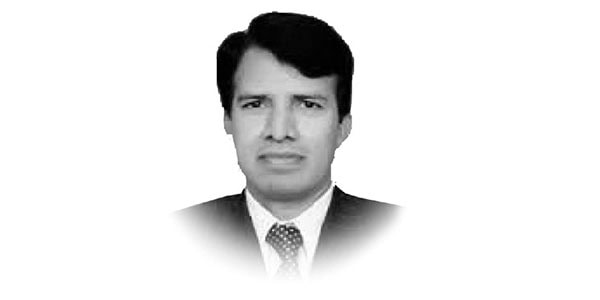Theorising academic unions for universities
THE primary objective of the student’s union in Pakistan was to ascertain, identify and train a talented youth who could act as a nursery for the provision of future leadership of the country and to form core in various fields of the state.
In this process, student’s affairs were to serve as ladder and baseline issues to proceed with.
The student’s affairs include; day to day administrative affairs of students, their academic matters and aspects related to their academic growth and managerial aspects under a knowledgeable environment.
Thus, the crux of having student unions in the universities of Pakistan was to develop a sensible and dedicated leadership at the national level while having awareness of their problems with a mechanism to resolve them peacefully through an academic approach.
This also includes advancement of universities in a gradual process, improvement in academic environment, ensuring availability of academic resources and above all keeping the universities free from acting as a hub of the conflicting forces which may have political, religious or any other motives.
Unfortunately, over the years, rather pursuing above-mentioned objectives, the student unions in Pakistan became a powerful tool at the hands of political, religious and multi-dimensional deleterious forces.
These forces with vested interests hire highlytalented students of universities to undertake and implement their undesired tasks at the cost of future of the students and academic discipline of the universities.
These undesired tasks have political, religious, ethnic and sub-nationalistic orientations rather aspirations for the assuming the role of a dedicated national leadership.
This brought a departure of the basic aims and objectives of the student unions.
After losing the essence of the student’s union, the forces started using students for attainment of their political objectives and other nefarious designs which stand contradictory to academic orientation and desired development of students as future national leadership.
In fact in some of the cases, platforms of these unions were used for raising anti-state narratives, which was height of their role.
Seeing the undesired activities by majority of students union in Pakistani universities, a ban was imposed over their active activities by Government(s).
In a way, the students union became hostage of some forces which had different agendas, quite opposite to the development of young leadership in Pakistan.
These forces have been providing uninterrupted finances to some talented students, bringing a materialistic approach among the juvenile nursery of Pakistan.
There came a total disorientation among the students, away from pursuing academic goals and institutional development.
In some of the cases, the academic staff and administration of the universities also became part of these forces, which were making use of students unions.
The frequent strikes and closure of universities at the will of student union paralyse the higher educational system of the state.
Today the university students are being used for creating national disharmony through; ethnic alignment, sectarian divide and narrow-minded sun-nationalistic groupings.
The question arises as to who funds these organizations and what is intended from this divide?
In Pakistan where over 90% population is Muslim and the state is ideology driven, is there a need to have Islamic religious parties and grouping?
It is violation of Directives of Allah and Holy Prophet (PBUH) and the spirit of creating Pakistan as an ideological state.
The ban on students union though apparently brought relief for those students who wanted to pursue their academic carriers, but there remained a covert role of these political and religious forces among the students.
There is a strong backing of this factor by some political and religious forces which are using the talented youth of Pakistan for their adverse political and narrow-minded religious goals.
But, they are forgetting the after effects of such a development based on political affiliations, sectarianism and ethnic factors.
This indeed is amounting to sowing a seed for the disharmony and national disintegration. Unfortunately, the centrifugal forces have once again used the Pakistani talented youth for their nefarious designs.
The Government of Pakistan and more importantly the state of Pakistan has to undertake a serious study to find a permanent solution to this problem which is getting complex day by day.
Before, external forces start exploiting universities and university students; let’s find a national solution to a national problem.
Almost all universities of Pakistan are today facing severe financial problems, thus situation is getting bad to worse.
If tomorrow, external forces start funding the Pakistani universities on various pretexts, they will definitely have their agendas too.
Those agendas may ultimately bring further deterioration in Pakistani universities.
The recipe of these problems is the formulation of Academic Unions in all universities of Pakistan.
These academic unions will have total academic agendas away from political, sectarian and ethnic usage of students and university staff.
This will bring a total academic orientation among the students with a clear positioning of creating a promising leadership among the youth of Pakistani universities.
The essence of academic unions is the academic disciple based unions, pursuing higher dimensions in their future career, focusing on the particular field.
These unions will aim at developing a dedicated and positive youth leadership right from the beginning.
Apart from their academic pursuit, academic unions will have national integration and use of soft power and positive image as the basic ingredient.
Let’s start concentrating on the future growth and development of our talented university students on constrictive lines rather continuing with the contemporary damaging trends.
This paper is aims at theorising and suggesting a reorientation of universities by establishing academic unions for all universities of Pakistan.
— The writer is Professor of Politics and IR at International Islamic University, Islamabad.










